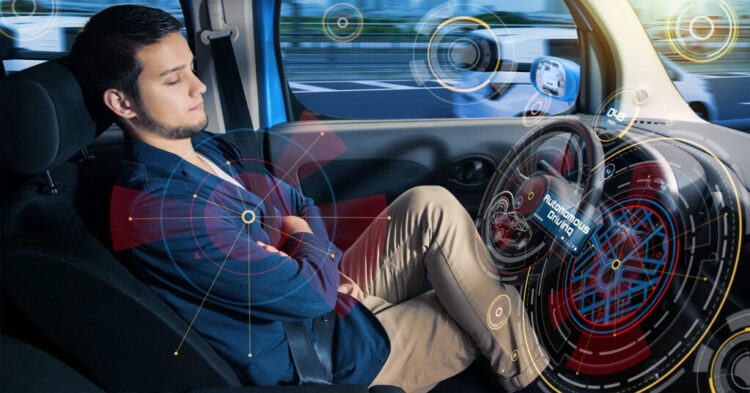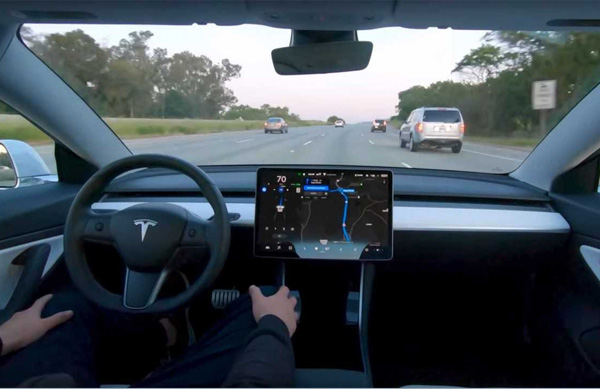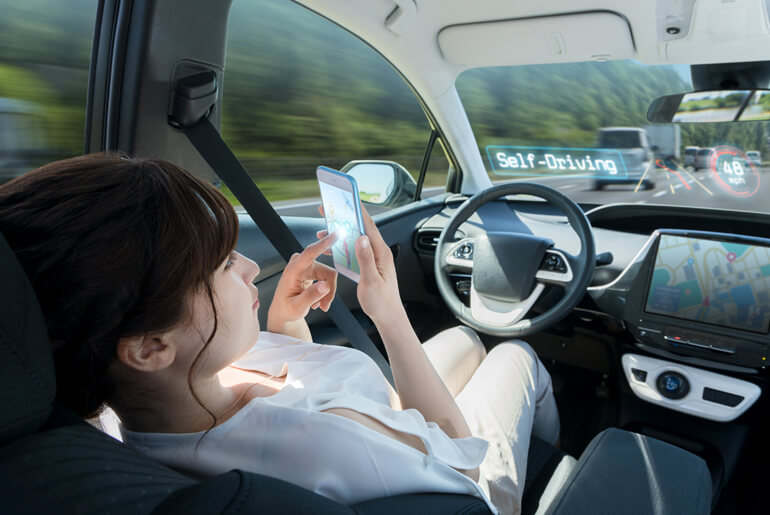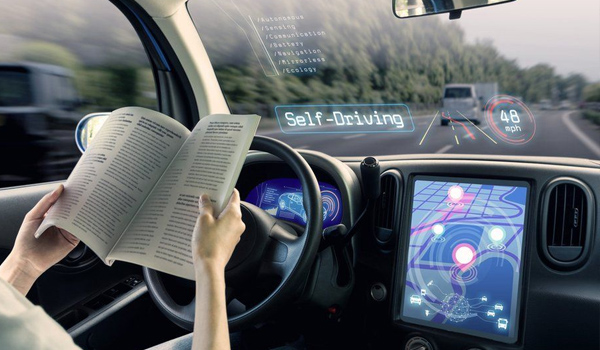A self-driving vehicle sounds like it belongs in a science fiction book. These cars actually exist, though, and they might soon be on Nigerian roads. So how do they operate, and are they actually secure enough to travel on roads and on motorways with other ordinary cars? Below, we’ve gone into greater detail about this subject.
Table of Contents
When people hear about self-driving cars, they usually respond with their eyes wide open and ask how it is possible in this day and age. It is something people dream about but don’t know actually exists. But, we are sure that the real question on everyone’s mind is how they actually work. Stick around and we will inform you.
A self-driving car is what exactly? You have to question if self-driving cars actually do what their name implies when you hear about them. The short answer is that these vehicles cannot entirely operate on their own; someone must be in the driver’s seat to assume control in specific circumstances. When a driver is needed, the car should alert them and allow them to take control.
Yet, this does not imply that completely autonomous vehicles do not exist. The phrase “self-driving” refers to automated vehicles that can drive independently of a human driver. There are various degrees of automation, though, so not every automated vehicle will have the same features and AI capabilities as others.
What’s the Process of a Self-Driving Car?
The brand, model, and manufacturer will have an impact on how everything functions, just as with any other kind of car. Yet, in general, self-driving cars share the same elements, such as a variety of sensors, a central computer system, and camera technology.
The majority of self-driving cars will have lidar, radar, and ultrasonic sensors. Ultrasonic sensors are generally used for navigating and parking, with the ability to detect things like other cars and curb edges. Lidar sensors monitor light and the environment around the automobile, while radar sensors estimate the speed of approaching cars to avoid crashes. The most futuristic sensors are undoubtedly lidar ones, which use laser beams to determine lane markers and road boundaries.
When it comes to video camera technology, it functions similarly to some sensors in that it can keep track of any barriers, traffic signals, and road signs your automobile comes across. A self-driving car’s primary computer system, which controls steering, acceleration, and braking, receives data from every other component.
Benefits and Disadvantages of Self-Driving Vehicles
The subject of self-driving cars can be divisive. Some people are against the idea of a self-driving car in case something goes wrong, but others are totally in favour of this cutting-edge technology. Below, we discuss some of the benefits and drawbacks:
Advantages Of Self-Driving Cars
- Self-driving vehicles may eventually be more ecologically beneficial since they will improve traffic flow and use less fuel.
- Roads should be safer with optimized traffic flow, especially when self-driving cars eliminate the possibility of human error.
- Self-driving cars may be a more inclusive form of transportation since they give disabled people and others who haven’t learned to drive more independence.
Disadvantages Of Self-Driving Cars
- Safety is the major issue with self-driving cars. As with any AI system, there is a chance that something may go wrong, the program could deteriorate, or it could be hacked. Deaths have actually been reported.
- Self-driving cars operate utilizing 5G, which would consume a lot of (mainly fossil fuel-driven) energy resources, despite the fact that proponents feel they are better for the environment. And 5G is not yet commercial in Nigeria making the possibility for these cars futile
- These cars would necessitate the construction of a lot of new infrastructure in the near future, which would be extremely expensive.
Where Can You Drive Self-Driving Cars?
At some point in the near future, self-driving cars will be able to travel on Nigerian highways. Though these won’t be fully automatic vehicles, for them to be legal, someone will need to be seated behind the wheel with their seatbelt fastened. The driver has to be in a position to take control of the car should the vehicle detect a collision risk.
Should such a risk occur, an emergency manoeuvre would be implemented, which would probably involve braking. And if the driver fails to take control of the car after this manoeuvre, the idea is that the vehicle would turn on its hazard lights and come to a slow stop.
Can You Buy a Self-Driving Car?
At the moment, self-driving cars aren’t sold commercially. You can get vehicles that will do things like a park for you, but as of yet, fully autonomous cars are mostly still in the testing stages. Who knows how many years it will be before self-driving cars will be easily accessible, let alone more popular than manual vehicles?
In the meantime, there are plenty of high-tech cars you can choose from, with features like keyless entry, collision warnings, and automatic high-beam lights which you can get from Carmart.ng.
Have 1 million naira and above to Buy or Sell Cars In Nigeria? Check carlots.ng
All rights reserved. Reproduction, publication, broadcasting, rewriting, or redistribution of this material and other digital content on carmart.ng is strictly prohibited without prior express written permission from Carmart Nigeria - Contact: [email protected]








